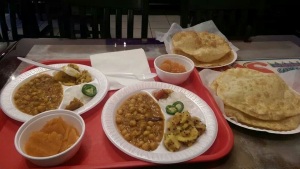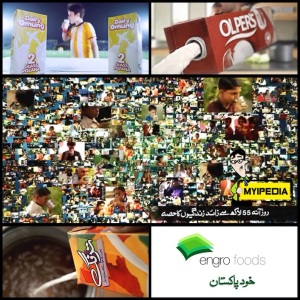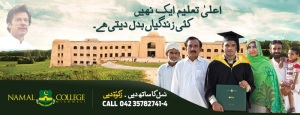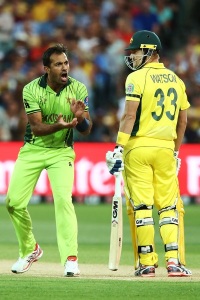 An early morning rise. It was Christmas Day for some; Midnight Mass and early morning services too. For others it was the Quaids birthday. Whatever, it was a National holiday. It allowed one to indulge oneself mid-week , notwithstanding the approaching year end work at the office.
An early morning rise. It was Christmas Day for some; Midnight Mass and early morning services too. For others it was the Quaids birthday. Whatever, it was a National holiday. It allowed one to indulge oneself mid-week , notwithstanding the approaching year end work at the office.
My son was visiting from university and so it was a good time to bond a bit. Once young people are out of the door and have gone to university, they never rightly comeback. So it was good to see him walking around the house early morning. On impulse, I inquired if he wanted to go out for a desi breakfast. And since he too has a sense of the out of the ordinary, so the answer was 'yes'.
Off we went, my first thought was 'lets go down to Burns Road (Bunz Rd) for nihari and some rabri'. But sitting in the car we decided to go for halwa puri, as nihari would slow us down for the rest of the day. It boiled down to where to go. Coming out of my old memories, the word Riaz Masjid popped into my mind. My childhood haunt, Tariq Road and the adjacent old Delhi walas society.
Memory is a strange phenomenon. It makes things larger than life. Riaz Masjid, where I had nihari and kebab through the years at Abdul Ghaffar. And where Bhai Babu served his worlds best gulab jamun. They are gulab jamuns to die for. Warm and they melt in the mouth, so syrupy soft they are. Riaz Masjid does not aspire to cleanliness, but it gives the same authentic old Karachi taste and feel. You can migrate back 50 years, to feel and touch a part of the brain locked away forever. This same Bhai Babu has great halwa puri and chana and aaloo saalan. It all made sense, providence desired that I take a trip down memory lane and so, we would go down to Riaz Masjid for breakfast at 6 30 am.
As we drove along, my memory recalled that adjacent to my destination was Sir Syed Rd, PECHS and that I spent my whole childhood till late teens there. It would be good to show my son a type of Karachi, he or youth like him have never seen. A city which had a lot of charm, was friendly, peaceful and had a character of its own. I still see the stamp of the old Karachi, in the individual Karachite. But alas, the individual has been swamped by a wider social cussedness which prevails today.
If you drive early morning in Karachi, it is totally still and quiet. Hardly any traffic. Its strange in a city which has millions of transport vehicles on the road for 18 hours, to go deathly quiet for 4 hours. It reminds one of Wordsworth's Composed On Westminster Bridge. Anyway, a drive which normally would take 40 minutes was over in about 15.
At Bhai Babu, early in morning, there is not much choice. The halwa, with fat pouring out of it, the two saalans and then the puris. The puris were like magic. Soft and fairly dry, which was extremely unusual. There were also what were called 'khasta puris', which are like no other I have eaten. Not made out of regular super refined flour (maaida), but rather out of wholewheat. These are totally different in taste and texture.
So what was the trip about then? The difference was in the old school feel. The culture harks back to the days of yore. The courtesy and language is Delhi of old and has never left the 19th century. Bhai Babu himself was reading an Urdu newspaper. He deigned to ask me a couple of questions on events, probably because he saw someone who was clearly from beyond the local community. My son, back from his university, having seen mainly one tone Karachi, was open eyed. He saw little bits of reality, which hopefully shall teach him about this country of his. Maybe, create that small spot of belonging, to a country and city, which we have all used and abused extensively, and given back little. Driving back home he was less talkative and more introspective. Even his questions seemed to leave the taste of belonging, which cannot be produced coming out of plush, swank dining places, which charge a fortune. Maybe a trip worth taking on a holiday morning, when a warm bed had beckoned. Left me with some happiness and optimism for the rest of the day.
I would recommend a trip to Bhai Babu to all of you, on a holiday morning.
*picture from pakistanifoodspoint.blogspot.com





